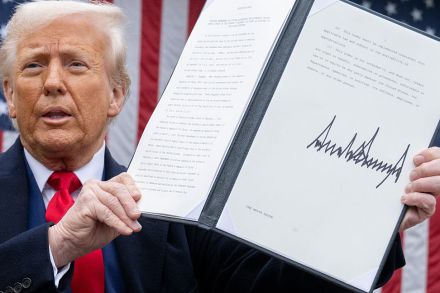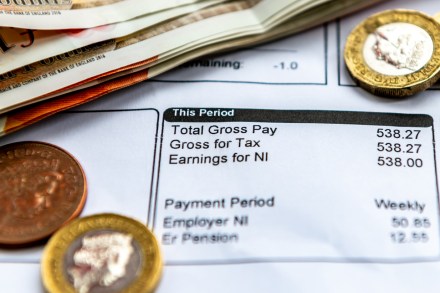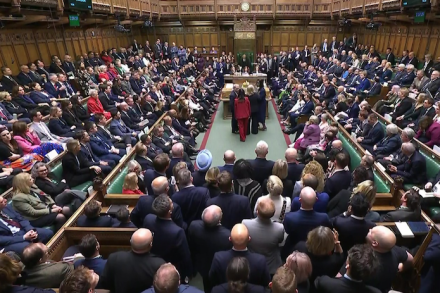This could be the largest US tax rise in half a century
Across the world, markets are plunging as they respond to the global tariffs Donald Trump unleashed from the White House rose garden last night – with the president’s top economist describing the falls as ‘short-term bumps’. The pound passed $1.30 for the first time in six months while stocks in Tokyo fell 4 per cent. On opening, the FTSE 100 fell nearly 2 per cent, despite the slightly more favourable 10 per cent levy we face compared to the 20 per cent Trump hit Europe with. How bad could these ‘bumps’ get for the US though? Trump returned to office promising tax cuts. But however he may spin his new




















